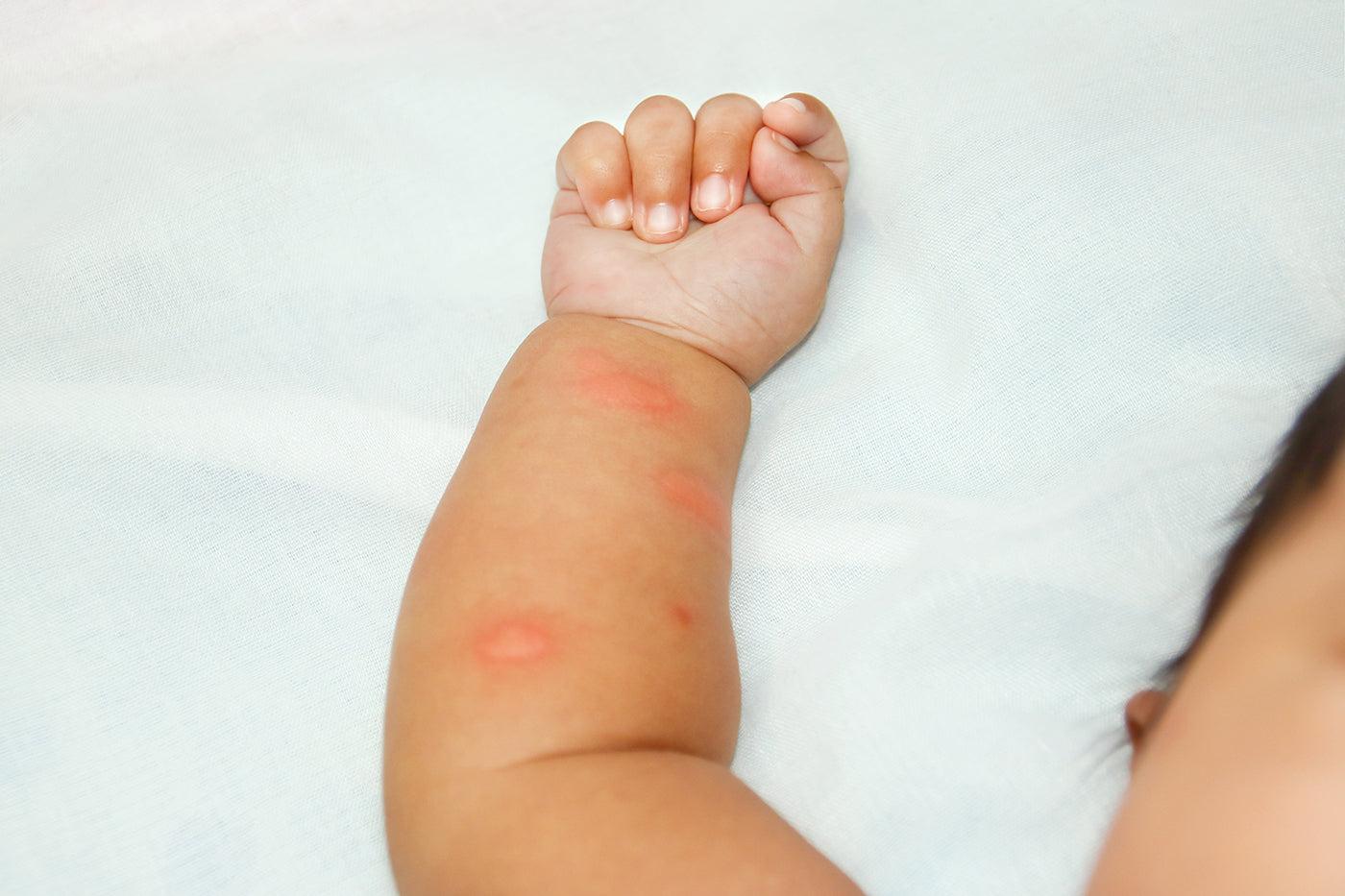PARENTS
Mosquitoes Are on the Rise…And So Are Insect-Borne Diseases
If you feel like you have noticed more annoying insect bites every summer…it is not your imagination playing tricks!

Written by
Dr. Harvey Karp

If you feel like you have noticed more annoying insect bites every summer…it is not your imagination playing tricks! Mosquitoes are on the rise (as are tick and flea bites). And with more bloodsuckers at large, has come infections caused by these bites…especially mosquito-borne infections.
Sadly, this uptick in bugs is yet another dangerous side effect of our man-made warming world. As climate change heats the planet, insects that previously were stopped dead in their tracks (in flight) in colder climates now creep, crawl, and buzz further and further north. And, with that migration comes a grab bag of unwanted hitchhikers like, Zika and West Nile virus. Additionally, people have been traveling more than ever in human history. As our friends and family globetrot, they pick up exotic bug-borne disease and carry them—in their bodies—to new locales (worst souvenir ever, right?).
Every year, 1 million people worldwide die from mosquito-borne illnesses, making mosquitoes the most dangerous living organism to all of human life. Dengue fever, one such illness, has increased about 30-fold over the past 50 years, and more than 200 million cases of malaria are reported each year.
There are currently 11 known mosquito-borne infections. These diseases are transmitted to humans through mosquito bites. When the mosquito bites, it 'spits' a little squirt of special saliva into your skin to keep the blood from clotting. Spitting and then sucking blood creates a path that allows the viruses to enter a person’s body. Every bite is like a tiny inoculation of a virus or parasite…then once inside, they just multiply.
Mosquito-borne illnesses include:
- Zika Virus
- West Nile Virus
- Malaria
- Dengue
- Yellow Fever
- Chikungunya
- Louis Encephalitis
- LaCrosse Encephalitis
- Western Equine Encephalitis
- Eastern Equine Encephalitis
- Dog Heartworm
How to Prevent Mosquito Bites
Scary, right? Fortunately, with knowledge comes power, so by staying informed and taking a few practical steps, you can keep your family safe from these itty-bitty infection-spreaders. Here are a few ways to keep dangerous bug bites at bay…
Remove all standing water on your property. Empty any buckets or toys in the yard that collect water after a rain shower. If you have a fountain or pond, there are several ways you can keep mosquitoes from breeding. Put in a pump to keep the water moving; add some killifishes, topminnows, tadpoles, and other aquatic animals that love eating larvae; use a non-chemical insecticide, that contains BT (bacillus thuringiensis).
Use a mosquito net to protect babies. Babies are especially vulnerable to mosquito bites. However, while bug sprays may be fine for adults, they are not safe for babies. That is why we now offer a mosquito net that elegantly covers your SNOO to keep mosquitoes—and other bugs and curious cats—away…we call it Shoo! Learn more about Shoo here.
Use clothing that mosquitoes cannot bite through. Wear long sleeves and pants, preferably made from woven cotton, denim, or nylon. These protect against bug bites better than thin, skin-tight fabrics—in other words, save the yoga pants for the yoga studio.
Wear light colours to confuse mosquitoes. It is counterintuitive, but dark colours help mosquitoes see you better!
Avoid going outside at peak mosquito hours. Mosquitoes are most active at dawn and dusk.
Use chemical bug repellant if you must. DEET is the best chemical-based bug repellant. Try putting it on your clothes instead of your skin (socks, shirt collar, shorts…test it to make sure you do not stain a favourite shirt). Really try not to use it on little kids…and certainly not on a baby who might try to suck it off!
Keep a fan on hand, especially outside. Mosquitoes are not strong flyers and they will avoid fast moving air so setting up fans on porches and around picnic tables will keep them away. Also, mosquitoes are attracted to the carbon dioxide in our breath, so fan-generated breezes help dissipate your breath and reduce a bug’s ability to find you.
Grow some mosquito-repelling plants. Get in the backyard and start planting lavender, cat nip, and basil all of which mosquitoes hate and tend to avoid.
Disclaimer: The information on our site is NOT medical advice for any specific person or condition. It is only meant as general information. If you have any medical questions and concerns about your child or yourself, please contact your health provider. Breastmilk is the best source of nutrition for babies. It is important that, in preparation for and during breastfeeding, mothers eat a healthy, balanced diet. Combined breast- and bottle-feeding in the first weeks of life may reduce the supply of a mother's breastmilk and reversing the decision not to breastfeed is difficult. If you do decide to use infant formula, you should follow instructions carefully.
SHARE THIS ARTICLE
PARENT PICKS
Bestsellers



















